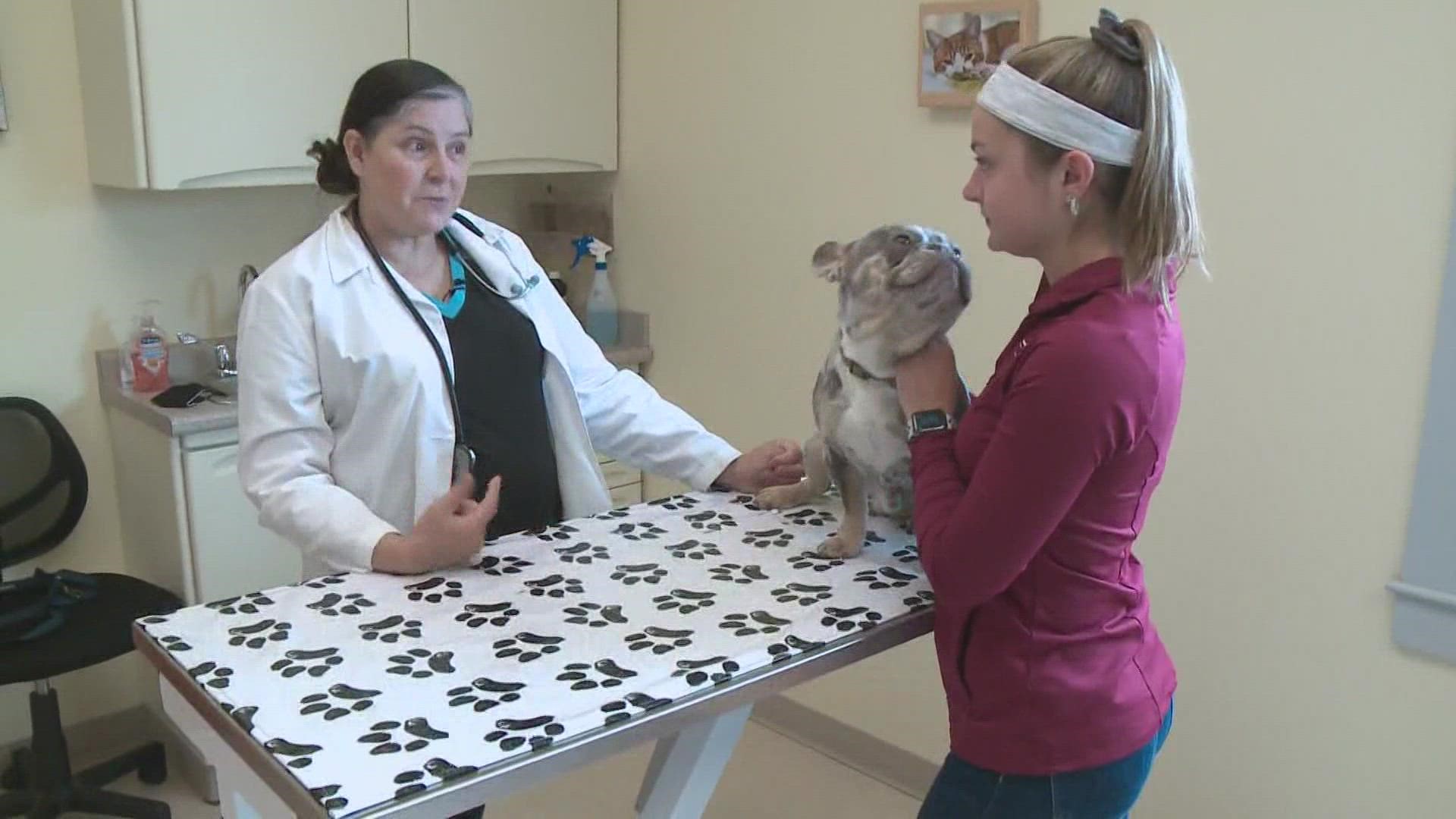CUMBERLAND, Maine — As NEWS CENTER Maine's Tick Week winds down, we told you how the changing climate is allowing deer ticks to move farther into northern and western Maine, putting more people at risk for Lyme and other tickborne infections.
But Mainers can't forget that their pets are at risk too. Some veterinarians said so far it's been a bad season for dogs, with a marked increase in tickborne diseases.
Experts said one of the first signs a dog may have Lyme disease is if your pet appears tired. That may lead to other symptoms and can go downhill if not detected. That's why it's so important to do tick checks and have your pet on a tick preventative all year round.
Dr. Julia Lucas is a veterinarian and pathologist at the Cumberland Animal Clinic. She and her staff are extremely busy trying to keep up with a spike in cases of Lyme diseases in dogs this summer.
"We are seeing a least a positive every day, sometimes two or three positives a day on our blood work," Lucas said.
Lucas pointed to a number of factors. Warming temperatures brought out ticks earlier this spring, more people adopted dogs during the pandemic, and people moving from outside of Maine may not be aware of how to protect their animals. She said ticks only need to be attached for 24 hours to spread the bacteria that causes Lyme. The signs of Lyme include appearing tired, lameness, fever, joint pain, and paralysis.
She says dogs can be infected for months before they come down with symptoms that can be fatal.
"It can cause kidney failure. That's one of the severe outcomes," Lucas explained.
Lucas said cats aren't considered a risk for Lyme because they are highly resistant to infections, but there are rare exceptions. Dogs are also at risk for other tickborne illnesses, including anaplasmosis and ehrlichiosis. But they are not considered as deadly as Lyme.
Pets can be treated for tickborne with antibiotics and IV treatment. She recommended getting dogs tested every year, and using oral preventatives to prevent tickborne infections.
"It's going to kill the tick very quickly, and the tick is going to fall off," Lucas added.
Haley Vaccarello's bulldog, Tino, is the first dog she bought on her own. She does daily tick checks anytime Tino is outdoors.
"I think it's especially important. Ticks are getting insane this year," Vaccarello said.
She also has Tino on an oral preventative instead of a topical preventative because she feels it's more effective in protecting against the growing number of ticks he may encounter outside.
"That puts my mind at ease. But for sure, that is something that is scary and I always think about," Vaccarello added.
Lucas said when using oral medication to protect your pets, they must be given consistently, usually every 30 days, to be the most effective. If your cats spend any time outdoors, she said to use a topical preventative or an oral prescription depending on your vet's recommendation.

